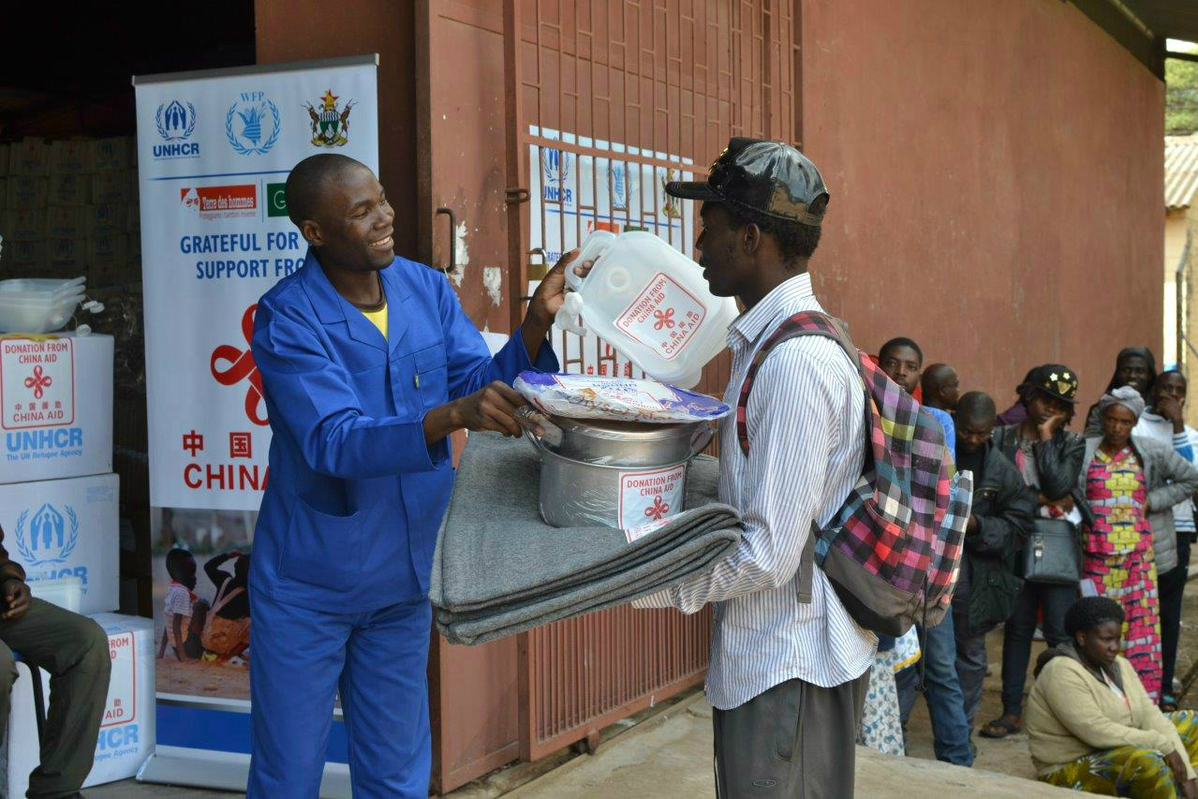UN agencies help nation on key fronts


The UNHCR
In 1979, when some 260,000 forcibly displaced Vietnamese, Laotians and Cambodians crossed into southern China, the government turned to the UN High Commissioner for Refugees and invited the agency to help manage the influx, marking the start of its operations in China.
Sivanka Dhanapala, the agency's current representative in China, said, "That was one of the biggest crises in the region at the time, and also the first such crisis the Chinese government had ever dealt with."
Dhanapala said the UNHCR's main responsibility was to provide guidance on the recognition of refugees and to offer future life support.
"Documentation is a very important legal requirement, because it not only ensures you acknowledge the (refugees') existence, but also enables them to access basic services, such as food, shelter, health, education and even job opportunities," he said. "These were all areas that the Chinese government and UNHCR worked very closely together on."
Dhanapala said this showed the "extraordinary generosity" of China at the time, as the country was not as economically advanced as it is today, but was ready to assist, along with the international community.
The refugee agency also helped settle the new arrivals in communities in six provinces and regions in southern China - Guangxi, Guangdong, Yunnan, Hainan, Fujian and Jiangxi.
A number of refugees have returned to their home countries, while some have remained in China and integrated with local communities.
For example, in 2005, the authorities in Yunnan started to issue the refugees with ID cards and hukou (household registration) certificates, giving them more access to a range of social welfare services.
After handing the program over to the Chinese authorities, the agency remained in the country at the request of the government to deal with the arrival of any further refugees and asylum seekers.
The agency, which is responsible for refugee identification and registration, conducts a series of interviews called Refugee Status Determination to assess whether asylum seekers qualify as refugees to receive further protection and support.
According to the UNHCR, there are more than 200 recognized refugees living in China, many of them from Somalia, while the remainder mainly come from Middle Eastern and African countries. They entered China legally, but became refugees because of changes taking place in their home countries.
Meanwhile, the office is reassessing part of its work and strategic objectives in China as the nation plays a growing role in global humanitarian affairs, said Dhanapala, who has worked in the country since January last year and has witnessed and been involved in the agency's transformation.
"We are trying to figure out how to effectively educate the public and raise awareness of refugee issues among them in China," he said.
Dhanapala said more than 70 million people have been forcibly displaced worldwide, the highest number ever recorded. "We need more younger people to be involved in our work who are willing to go out and contribute to humanitarian efforts," he said.
In June, the agency launched a three-day film festival in Beijing to observe World Refugee Day, which falls on June 20.
The series of refugee-themed films included Capernaum, which depicts their lives and the harsh realities they face.
"It's a way of telling their story. I think this is the most compelling way to generate empathy, raise awareness and contribute to solutions to refugee issues," Dhanapala said.
The agency is also working closely with the Chinese authorities to mobilize political and financial support on global refugee issues.
For example, in 2016, China pledged hundreds of millions of dollars in humanitarian assistance to address the global refugee crisis through bilateral and multilateral channels.
"It's very pleasing to see China's goodwill in offering more assistance on forced displacements around the world, and therefore supporting refugee operations globally," Dhanapala said.
He added that it was time for less-developed countries to learn from China, which had stepped up to cooperate with the agency in working to find feasible solutions to refugee issues.
"It's particularly interesting to work here at this time, because China is undergoing this shift from being a recipient to a humanitarian and development player. I feel excited to be part of the UN efforts in securing China's support, and working with the government and the people," he said.
"I think in the long run, it (China's support) will be a major contribution to humanity."


















